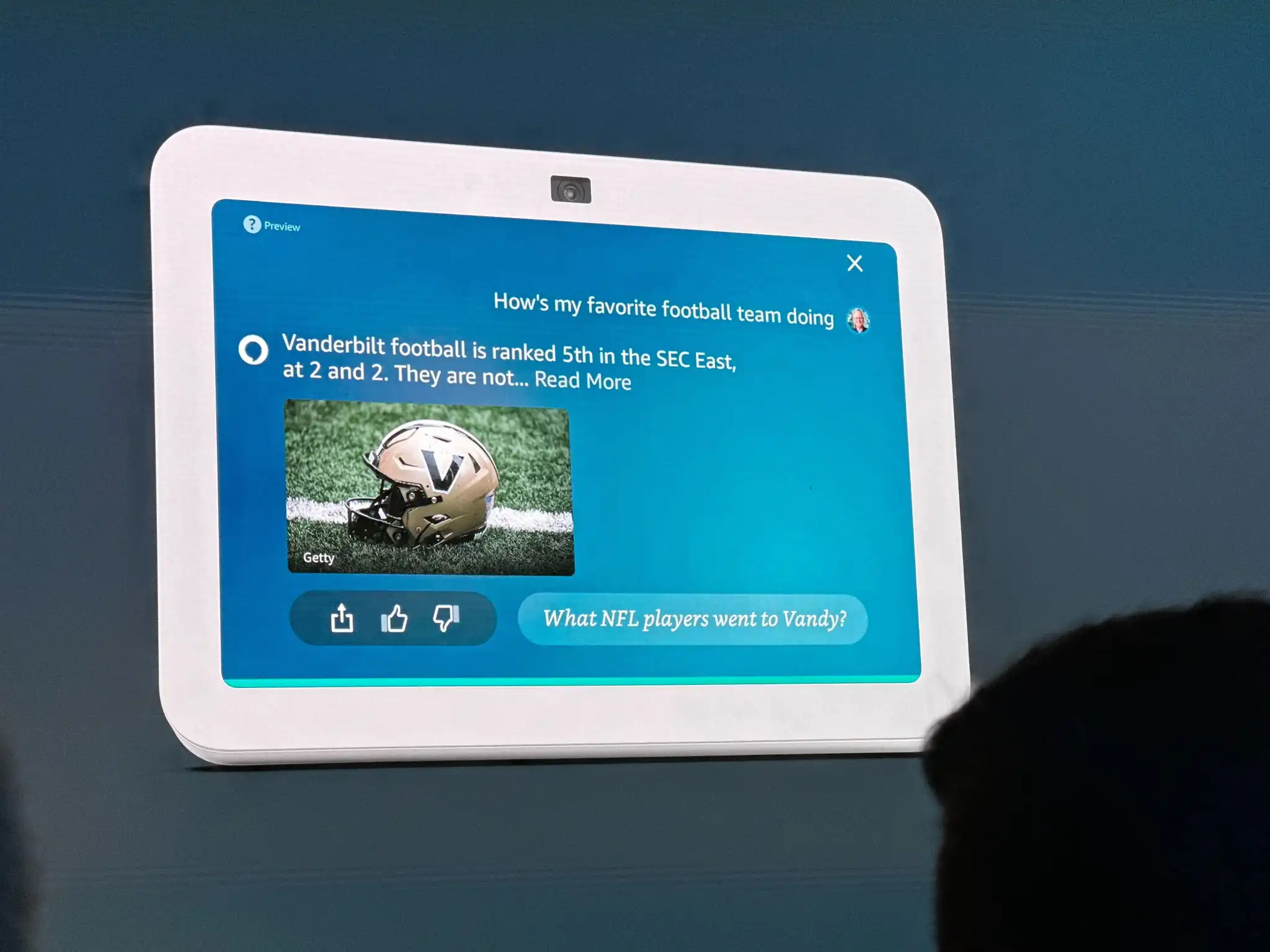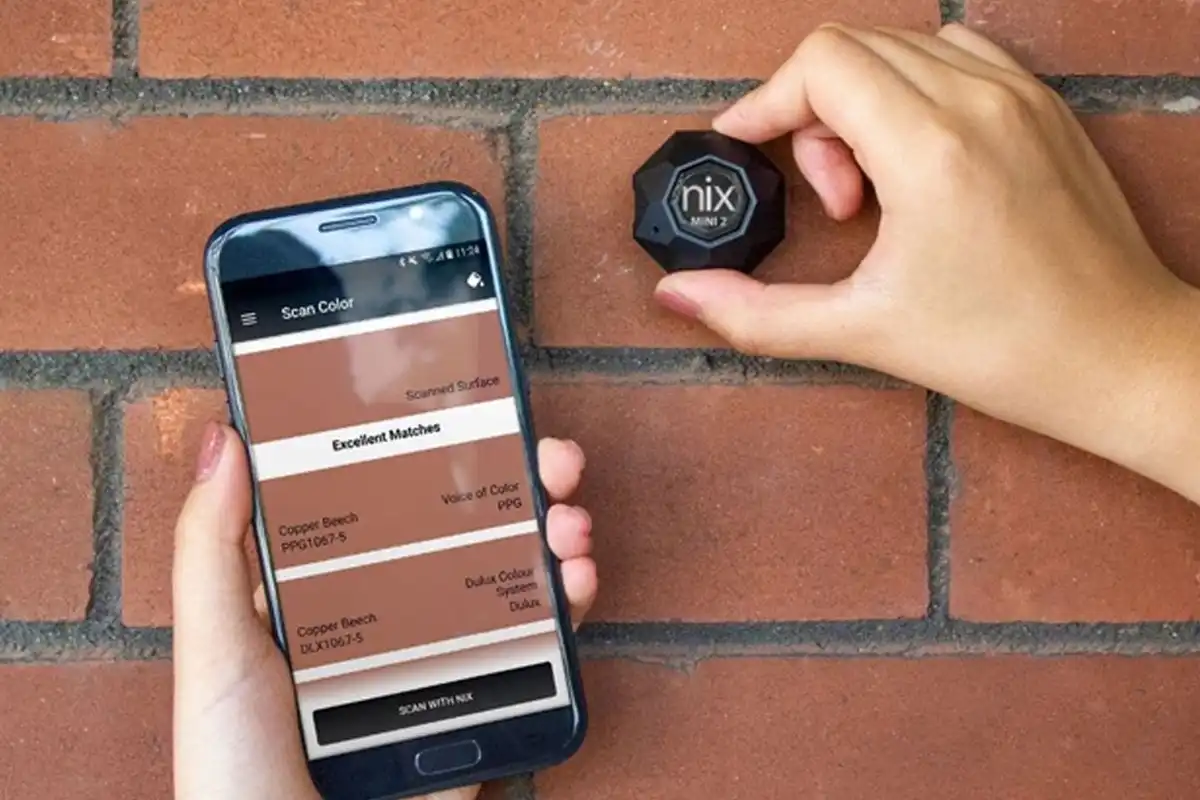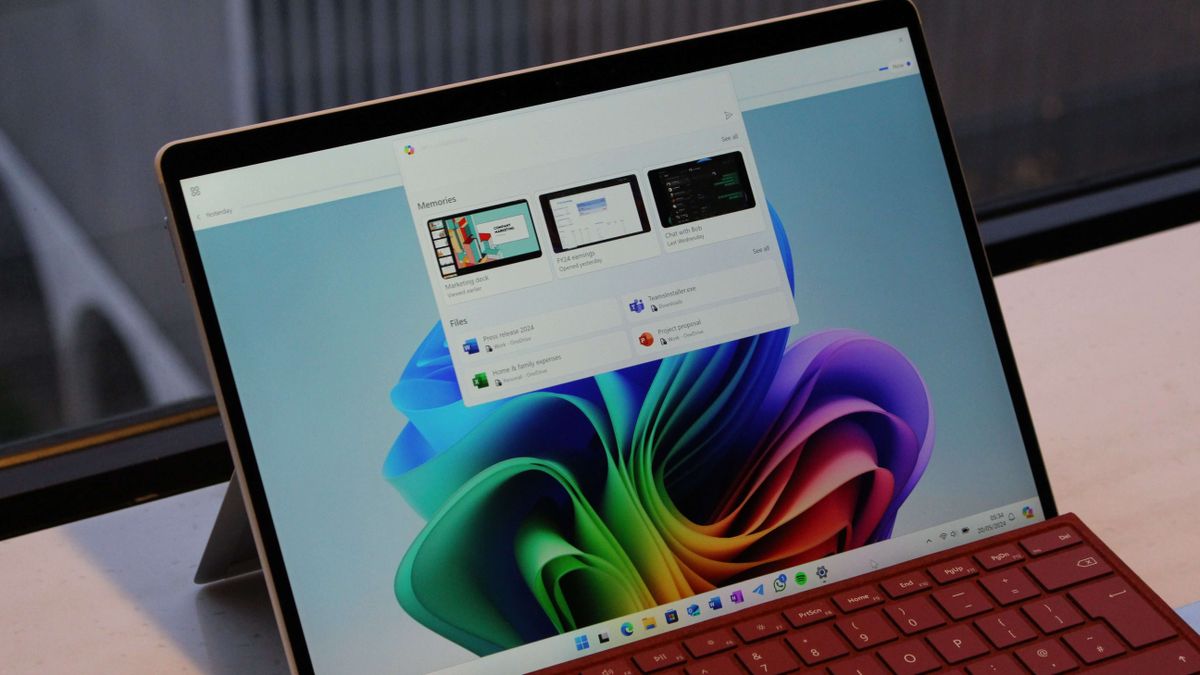It’s been more than a year since we got our first glimpse of an AI-supercharged Alexa. What happened?
In a world where ChatGPT, Gemini, and Claude are making one breakthrough after another as they chase the holy grail of AGI (Artificial General Intelligence), Amazon’s Alexa is looking decidedly quaint, if not antiquated.
So the world took notice in September 2023 when Amazon demoed a revamped and AI-powered Alexa, backed by a state-of-the-art large language model (LLM) and capable of a whole new bag of tricks, starting with a vastly upgraded conversation style.
Now here we are, more than a year later, and there’s still no obvious sign of the new AI-powered Alexa on our Amazon Echo speakers. What’s the deal?
Here’s what we know—and don’t know—about the “remarkable” new AI Alexa, including what it will do, which devices it will work on, and when it will arrive.
What’s the new AI-powered Alexa?
While Alexa as we know it has long used machine learning and AI to chat with us and perform smart-home duties, the revamped Alexa will land with a new generation of LLMs under the hood, allowing for the same (or at least similar) types of conversation skills employed by OpenAI’s ChatGPT, Google’s Gemini, and Anthropic’s Claude.
Amazon initially said the new Alexa would run on a custom-built, in-house LLM called “Titan,” but there are indications that the company may have changed course, reportedly switching (at least in part) to Anthropic’s Claude after investing billions in that company.
For its part, Amazon maintains that it has always used “a variety of different models—including Titan and future Amazon models, as well as those from partners—to build the best experience for customers.”
What kind of features can we expect from the new Alexa?
During Amazon’s September 2023 demo, then-outgoing Amazon hardware lead David Lamb (who has since been replaced by ex-Microsoft exec Panos Panay) led the new Alexa in a free-flowing conversation, with Alexa smoothly keeping up its end of the chat while throwing in an emotive lilt largely absent from the “old” Alexa.
This “remarkable” Alexa (as it’s been called within Amazon) will even be able to spot non-verbal emotional queues with help from the cameras and other sensors in Echo devices, Amazon says.
But the AI-powered Alexa promises to be more than just a chatbot, with Amazon touting its ability to control smart-home devices, create smart routines, remember your previous conversations and preferences, or compose notes to send to friends and family.
There’s also been chatter of other possible new-Alexa features, including “AI-generated summaries of news articles,” recipe-finding functionality, and an AI chatbot for kids.
Will the “remarkable” AI-powered Alexa cost extra?
Amazon has floated the idea of levying an extra charge for the new Alexa, with some unconfirmed reports suggesting a subscription with a price range of anywhere from $5 to $10 per month.
Of course, coming up with an Alexa service that people would be willing to pay for has reportedly been a sticking point for Amazon, with some staffers said to doubt that the features on offer would convince many users to cough up cash.
What’s happening to the old Alexa?
Even as he sketched out the possibility for charging for the new Alexa, Amazon’s David Lamb promised that “classic” Alexa—that is, the Alexa we’re using today—would “always” remain free.
That would lead to a two-tier Alexa service: a paid “pro”-type subscription and a free “classic” tier, a first for Alexa but standard practice when it comes to ChatGPT, Gemini, and Claude.
Which speakers will the new Alexa work with?
During its initial demo of the new Alexa, Amazon showed it worked on a standard Echo Show display, while also indicating that a forthcoming preview of the revamped assistant would work on all existing Echo devices.
That strategy would be similar to Google’s, which is promising that a Google Assistant souped up by Gemini will work on its current Nest devices. Apple, on the other hand, has said that its second-gen HomePod and the HomePod mini aren’t capable of running Apple Intelligence.
When is the new AI-powered Alexa supposed to arrive?
At its “remarkable” Alexa unveiling in September 2023, Amazon execs said we’d be able to give the new Alexa a test drive during a preview due “early next year.”
Well, “next year” has mostly come and gone, and there’s no sign of the revamped, AI-powered Alexa arriving anytime soon.
According to Bloomberg, the new launch window for the “remarkable” Alexa is 2025, a safe prediction given that 2024 is now drawing to a close.
Why the delay?
Delay? What delay? That’s Amazon’s current stance, with the company saying recently that it has “already integrated generative AI into different components of Alexa” and that it’s “excited about what we’re building and look forward to delivering it for our customers.”
But insiders are telling a different story, with reports describing a “remarkable” Alexa that was “deflecting answers” and “often giving unnecessarily long or inaccurate responses,” afflictions common to even the biggest, most popular LLMs.
Worse, though, are the claims that the new Alexa isn’t as good at controlling smart home devices as the “classic” Alexa.
Of course, getting generative and hallucination-prone AI models to reliably control smart home gadgets is a tough nut to crack, and it’s telling that Apple and Google have been treading carefully in that regard. Google, for its part, only recently gave Gemini limited control over smart home devices, while Apple Intelligence has yet to venture into Apple Home.
What’s at stake for Amazon with the AI-powered Alexa?
Well, a lot. Some reports have pegged 2024 as a “make-or-break” year for Alexa, with a paid Alexa seen as the best way to nudge the troubled Amazon division into profitable territory.
With 2024 quickly coming to an end, 2025 appears to be the new “make-or-break” period, and it seems almost certain that Amazon will see its “remarkable” Alexa experiment through given the billions of dollars it’s already sunk into the voice assistant.
But can Amazon make a convincing case for Alexa users—who, after all, are used to paying zilch for Alexa access—to pay up for a gen AI-powered version? We’re likely to get the answer next year.




